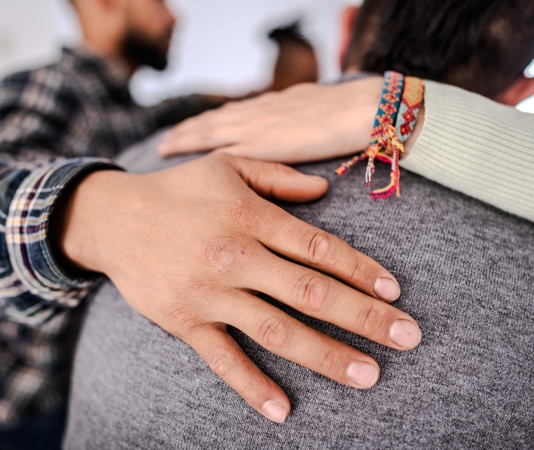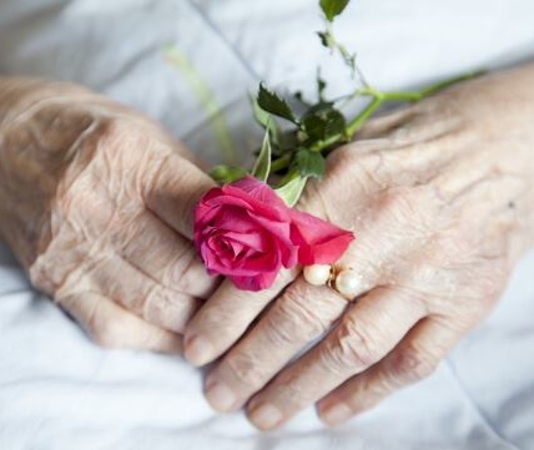When someone needs care due to illness or age, they might develop a loving closeness with the person or persons who help them. In many cases this means helping them until they pass away, leaving the caregiver without their focus and purpose.
Barry J. Jacobs, Psy.D., clinical psychologist and co-author of “AARP Meditations for Caregivers,” shares his insights as both a family caregiver and medical expert. Dr. Jacobs is also the Director of Behavioral Sciences, Crozer-Keystone Family Medicine Residency Program in Springfield, PA.
Q: Do caregivers feel grief differently than people who have not been caregivers for another person?
A: Grief is a normal reaction of sadness and tearfulness to the loss of a loved one. The fact that professional caregivers also grieve at times when their patients die is a testament to their caring and the quality of the empathetic relationships they form. All of this is true for family caregivers, but they are also prone to other reactions that may complicate the bereavement process. Family caregivers who were especially invested in their caregiving roles often grieve the person who died and, also, the loss of what has been a gratifying caregiving role. They also frequently feel guilt that they somehow failed their loved one, either because that person suffered in some way before their death or simply because they died. As a consequence of these complicating factors, family caregivers have a higher rate of clinical depression (not just normal sadness) during the mourning period than others who were not caregivers.
Q: Might a caregiver feel relief too? If yes, is there guilt?
A: Yes, and I’ve written about this before. Family caregivers often feel a sense of relief immediately following the death of their loved one and the cessation of caregiving duties. But that relief is often quickly followed by guilt, as if the caregiver suspects they somehow wished their loved one dead. I often tell caregivers prior to the death that feelings of sadness, relief and guilt are normal and expectable. I try to help them minimize the guilt as much as possible because that is the emotion that generally prolongs the mourning process and has the greatest likelihood of leading to clinical depression.
Q: Can you share tips on how caregivers can cope with their grief?
A: The most important tip I give to grieving caregivers is to be kind to themselves.
Also, patience is key.
They should learn about the normal process of bereavement, particularly its likely time frame. Most people greatly underestimate the length of the process. When I tell them that it can be normal for caregivers to feel ongoing sadness for 1-2 years, they are usually shocked when they hear “years.” But then I hasten to add that they will not feel the same intensity of sadness in month 18 that they feel in month 2; there will be a gradual diminution of sadness over time.
Another tip is to be aware of guilt. I tell caregivers that guilt complicates and prolongs the grieving process. It is very common for caregivers to second-guess their decisions, particularly just prior to their loved one’s death. However, things often take their natural course and caregivers needlessly and unrealistically take responsibility for things over which they had little or no control.
Ultimately, he says, it’s best for caregivers to look back on their experience as one in which they did their best and be grateful for the time they had together.


.1).1804091720407.png)


